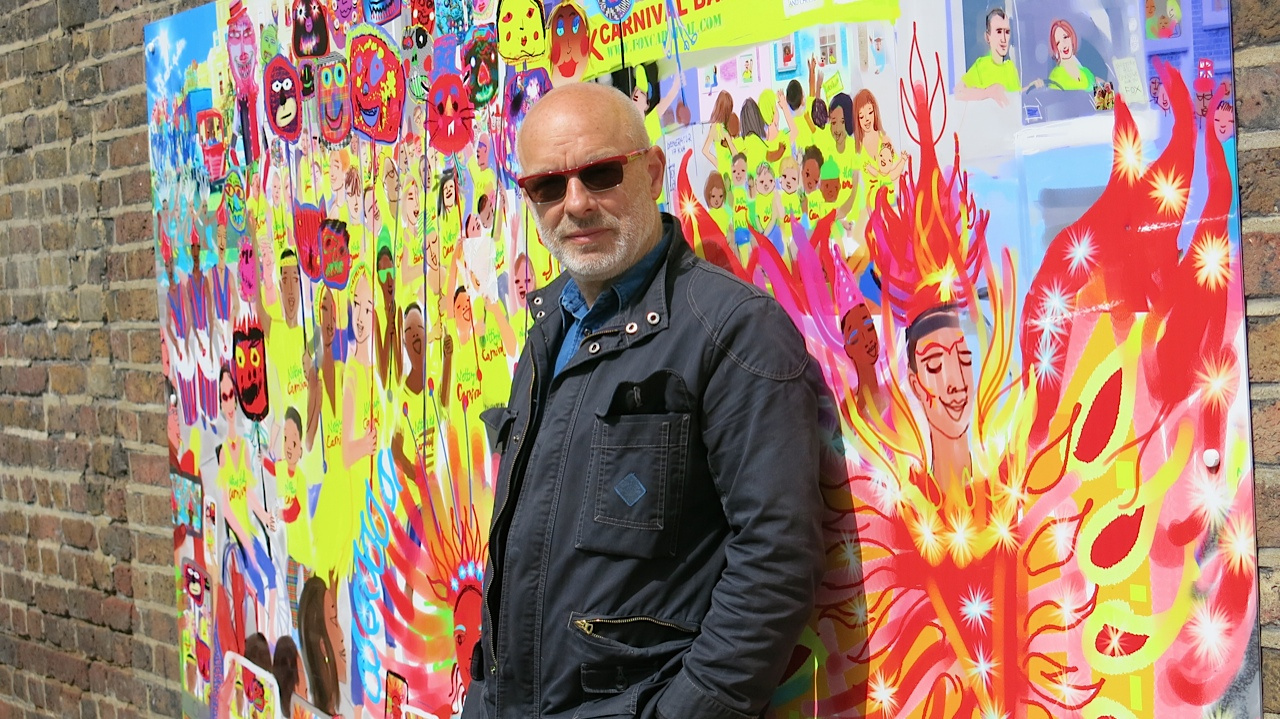Brian Eno
Year of birth, place
Biography
Brian Eno has become an iconic figure within international contemporary culture. As an artist, musician, ideologue and systems-maker, he has not only written, performed, recorded and produced some of the most intoxicating and original music of the last forty years, but has also established a philosophy of cultural production which links the enquiring spirit of conceptual art to the broadest applications of popular culture and sociology. A veteran pioneer of extreme forms of music making, with a lifelong interest in working outside of inherited or presumed roles, Eno’s brilliance as a producer lies in his ability to enable musicians to re-enchant their own creativity in new and dramatic ways.
Eno’s roots are in the progressive art education systems of the middle to late 60’s. As a student at Winchester School of Art he was already regarded as a controversial figure for his determined questioning of how the role of artist might be dismantled and redefined. Combining a natural brilliance for numerical problem solving, with a vivid literary and visual imagination, Eno came to recognize the unexplored potentials of music making as a valid new form for contemporary art. His immediate involvement with such avantgardists as Cornelius Cardew, the Scratch Orchestra and Portsmouth Sinfonietta, can now be seen to establish the foundations of Eno’s career-long interest in self- generating systems of creativity – a form which he would refine nearly twenty five years later, in 1996, through his creation of »Generative Music« software.
Brian Eno’s generative music systems are best known for creating richly textured soundscapes, as engrossing as they are minimal, and as densely layered as they are refined to delicate curves, drifts and traceries of sound.
The generative music system created by Brian Eno nearly fifteen years later for »I Dormienti« is in the direct lineage of this founding statement, its conceptualism both refined and enhanced by subsequent developments in technology and the progression of Eno’s thinking. By applying the lush, meditative, compositional aesthetics that he had honed to such masterpieces of musical minimalism as »Thursday Afternoon« (1985), to the processes of randomness and longevity enabled by CD technology, Eno created a system of unpredictable overlay which, as he wrote of »I Dormienti« in 1999, enabled a total playing time that was »effectively infinite.«
As Eno’s tireless creativity seems always to have been empowered by his balancing of opposites – systems and glamour, science and aesthetics, conceptualism and politics – so his continued work in the musical field has been matched by his site specific and environmental media projects – notably in the form of audio-visual installation.
